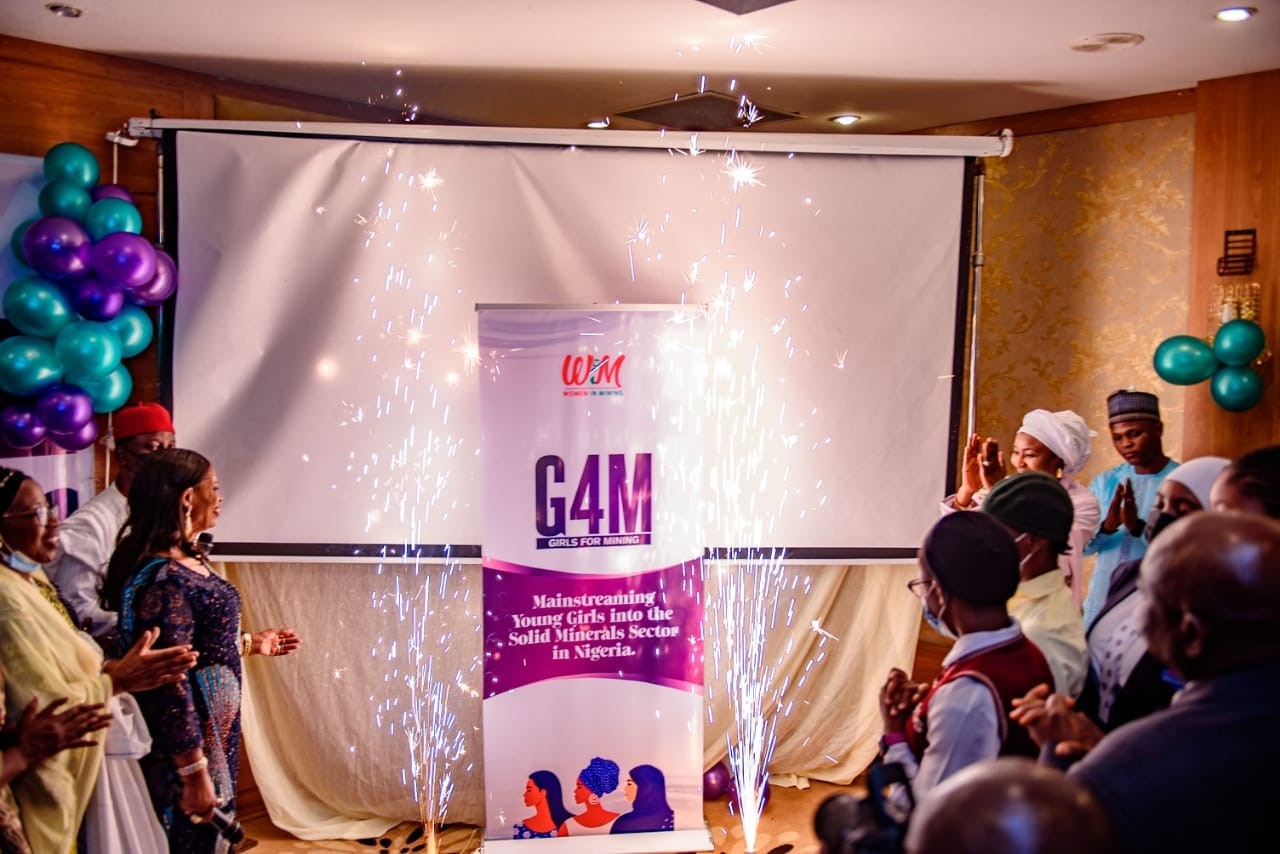
On Wednesday July 13 2022, the foundation was laid for a new beginning. Girls for Mining, fondly called the G4M Club, was launched at the Government Senior Secondary school Wuse, a public secondary school in the heart of Abuja, to unlock the potentials of young girls and introduce them to the mining sector. The G4M mining project was officially inaugurated on the 8th of March with optimism and fanfare.
The inauguration in March was heavily attended by crucial stakeholders including the Ministers in charge of the Ministry of Mines and Steel Development, Arc. Olamilekan Adegbite, Dr. Uchechukwu Samson Ogah; the Director of ASM, Mr. Patrick Ojeka; Executive Director of Solid Minerals Development Fund (SMDF), Hajia Fatima Shinkafi; Arc. Fifi Ejindu; Nigeria's first femal Minister of Education, Prof. Chinwe Obaje, and Emotan Ventures, a foremost woman owned and led mining company, as well as female students from secondary schools in Abuja
Mining is historically believed to be the exclusive preserve for men, while women are left to bear the negative impacts and trauma. This is so because most of the women working or living within and around mining communities are not sufficiently educated to challenge the statuesque.
Since the early modern period, women have been extensively involved in mining in different parts of the world. However, with the industrialization and mechanization of mining at the end of the eighteenth century, women were gradually excluded from mining, partly due to the emergence of the male breadwinner model and 'laws to protect women and children, resulting in the ban on and the exclusion of women and children from working in underground mines' (Romano and Papastefanaki, 2020), also stated in Section 56 (2) of the Nigeria Labour Law.
The club was launched to attract more women to the extractive sector in view of the current 6.8% and over 90% who are in the lower cadre. As we speak, only one woman heads an agency in the Ministry, while there are no female directors. The extractive industries (EI) remains a male-dominated industry as compared to the other industries in Africa. It is important to involve women in it because women have the same right to development as men. So, if EI denies them access to economic and social development, that particular human right has been violated.
The research funded by OSIWA and Ford Foundation was an eye opener on the gender gaps in the sector in all areas, and to bridge the gap, a lot of interventions are needed. There are several factors that are barriers to the participation of the girl child, from cultural myths, lack of education, access to finance, and technical expertise, to assigned roles as care givers, and other biases, etc.
To address this, Women in Mining embarked on the conceptualization of the Girls 4 Mining Club where young girls are introduced to the sector in an attempt to break the myths and conquer their fears. Our 18-month research project which is still on-going made us realise the need to reach out quickly in order to bridge the gap. Most female undergraduates simply acquire the certificate for keeps because of the biases and fears instilled in them. Now is the set time to break the biases.
However, the advocacy is paying off, and there is need to focus on the younger generation by opening a pipeline of knowledge sharing and advocacy to promote professionalism in the sector. In view of the recent global developments which heralded the fourth industrial age, where ICT, mining and agriculture will drive global economics, it is imperative to sensitize our young girls to the opportunities in the sector and disabuse their minds from previous negative beliefs that excluded women from the wealthy class and decision making.
Mining is extremely important to the global protocols of the decarbonization of global energy and climate change. The World Bank estimates that three billion tonnes of metals and minerals are needed to decarbonise the global energy system by 2050. According to the Organisation for Economic Co-operation and Development (OECD), the world’s demand for raw materials is expected to double by 2060.
Thus, the Girls for Mining Project (G4M) is a club within Women in Mining where young girls in secondary schools and tertiary institutions are encouraged to embrace Science, Technology, Engineering, and Mathematics (STEM) related courses and professions in the extractive sector and are linked to mentors to support the knowledge acquired.
Our goal is to raise girls who, through the education acquired, will grow to become global giants and eventually bridge the gaps in the industry.